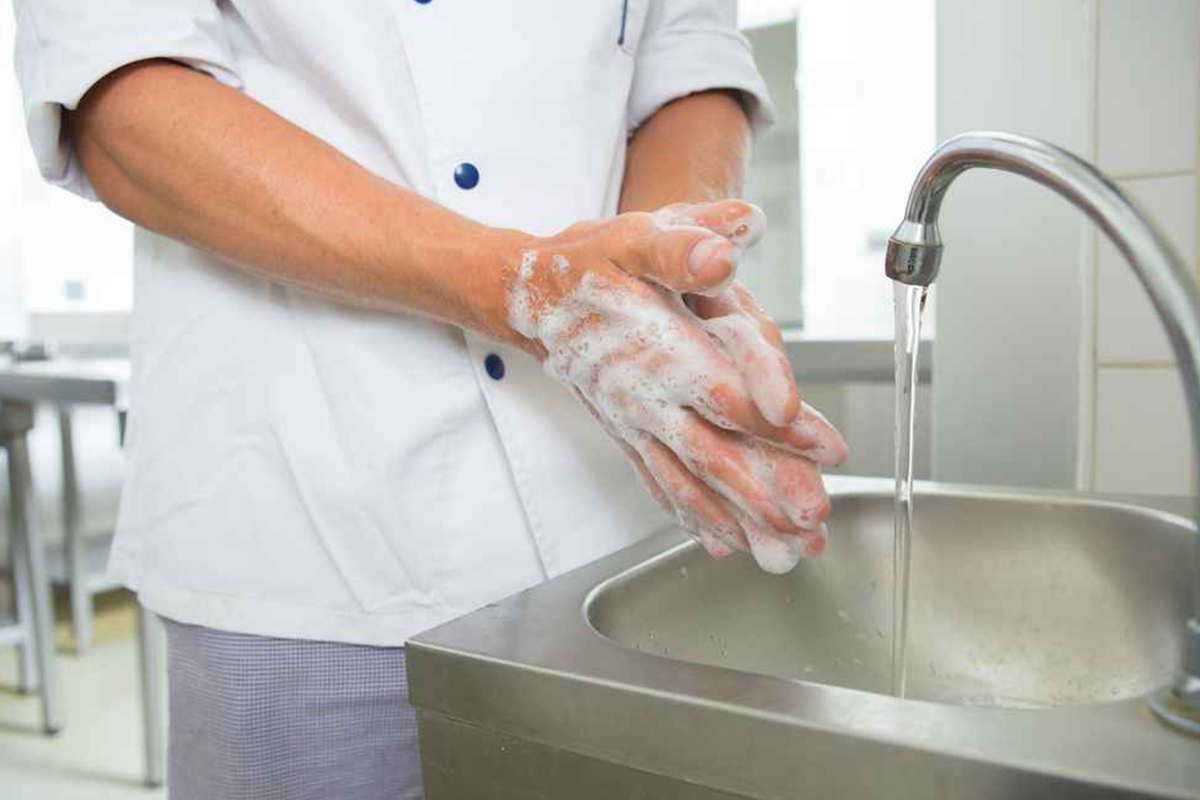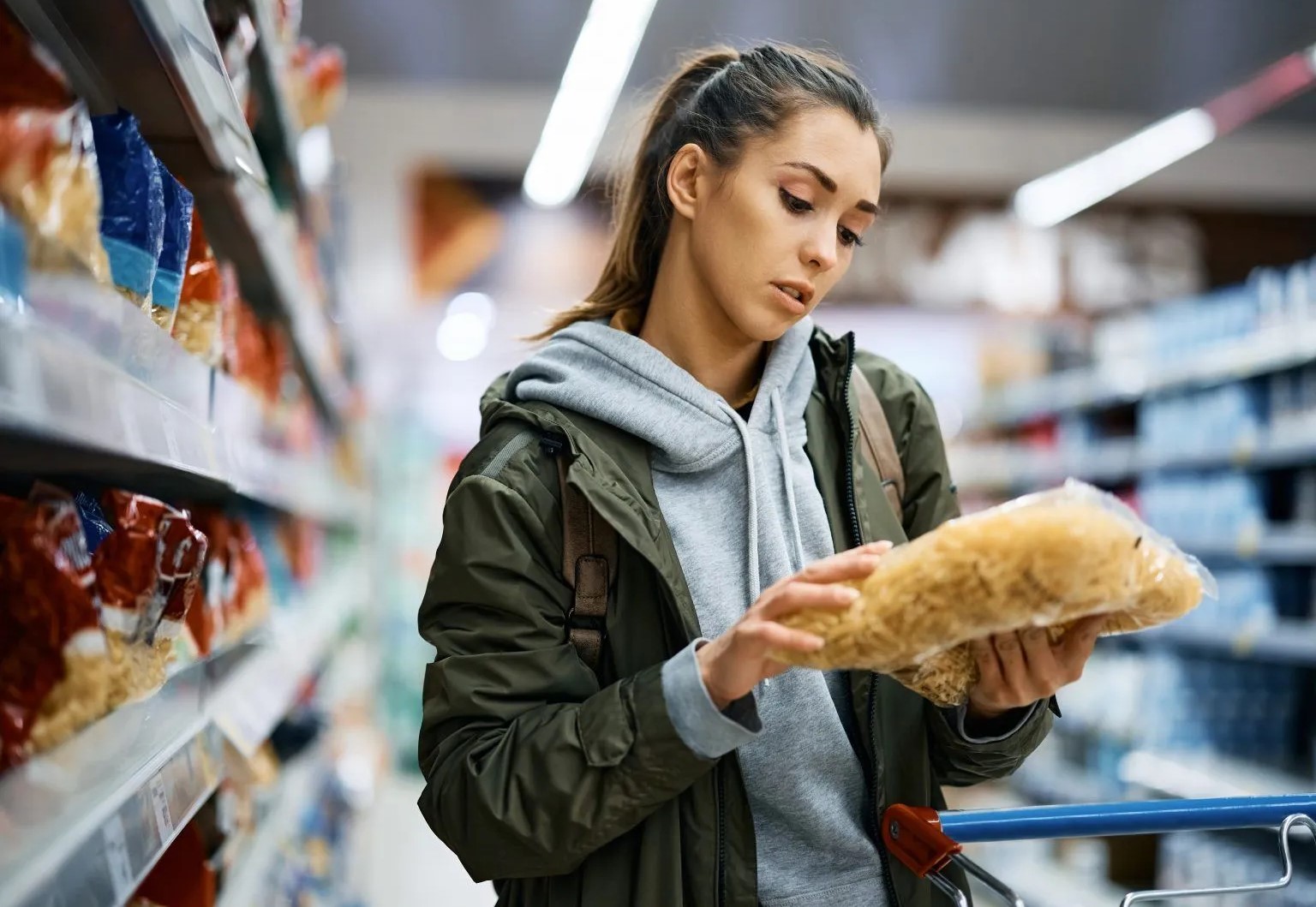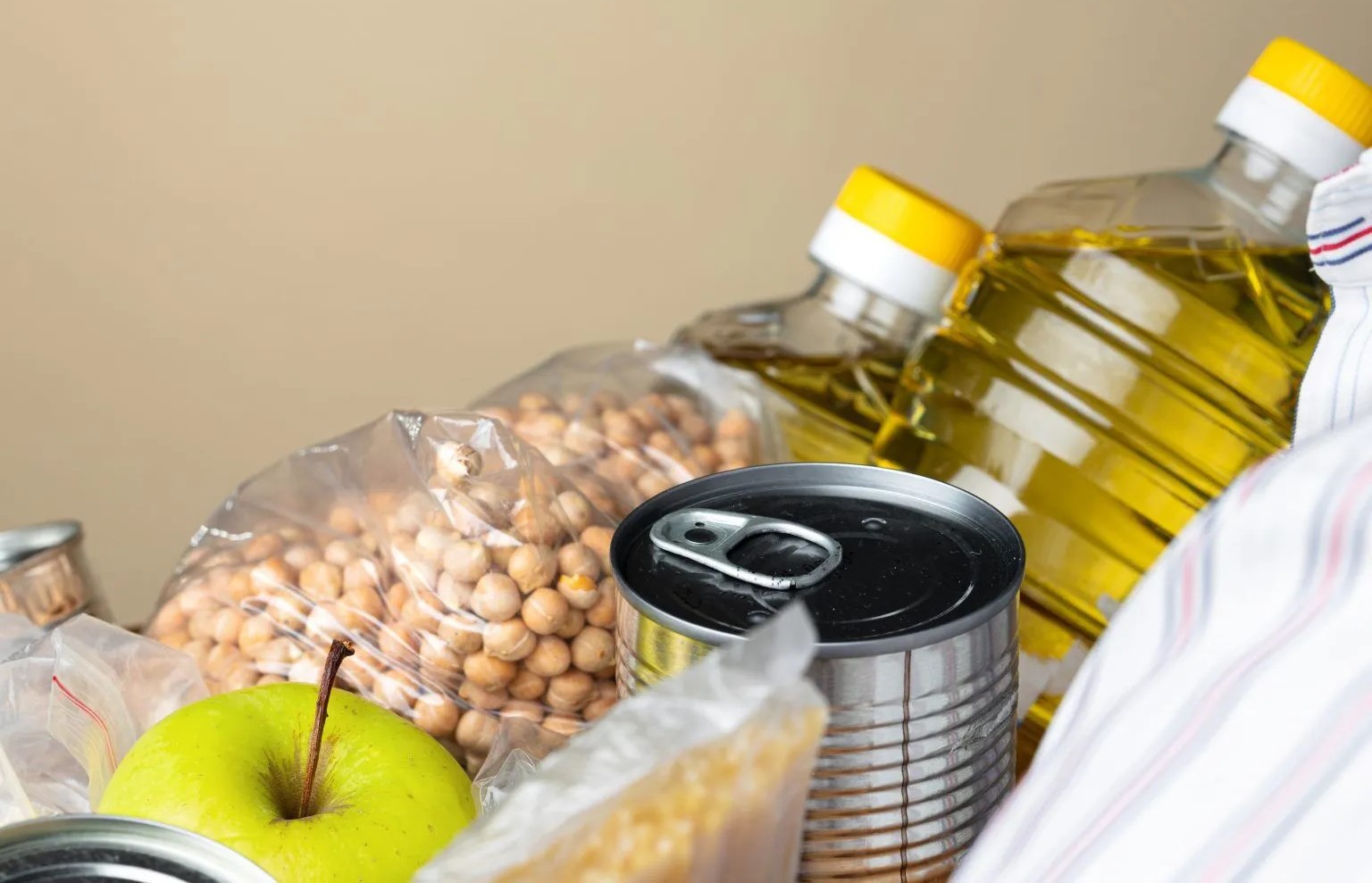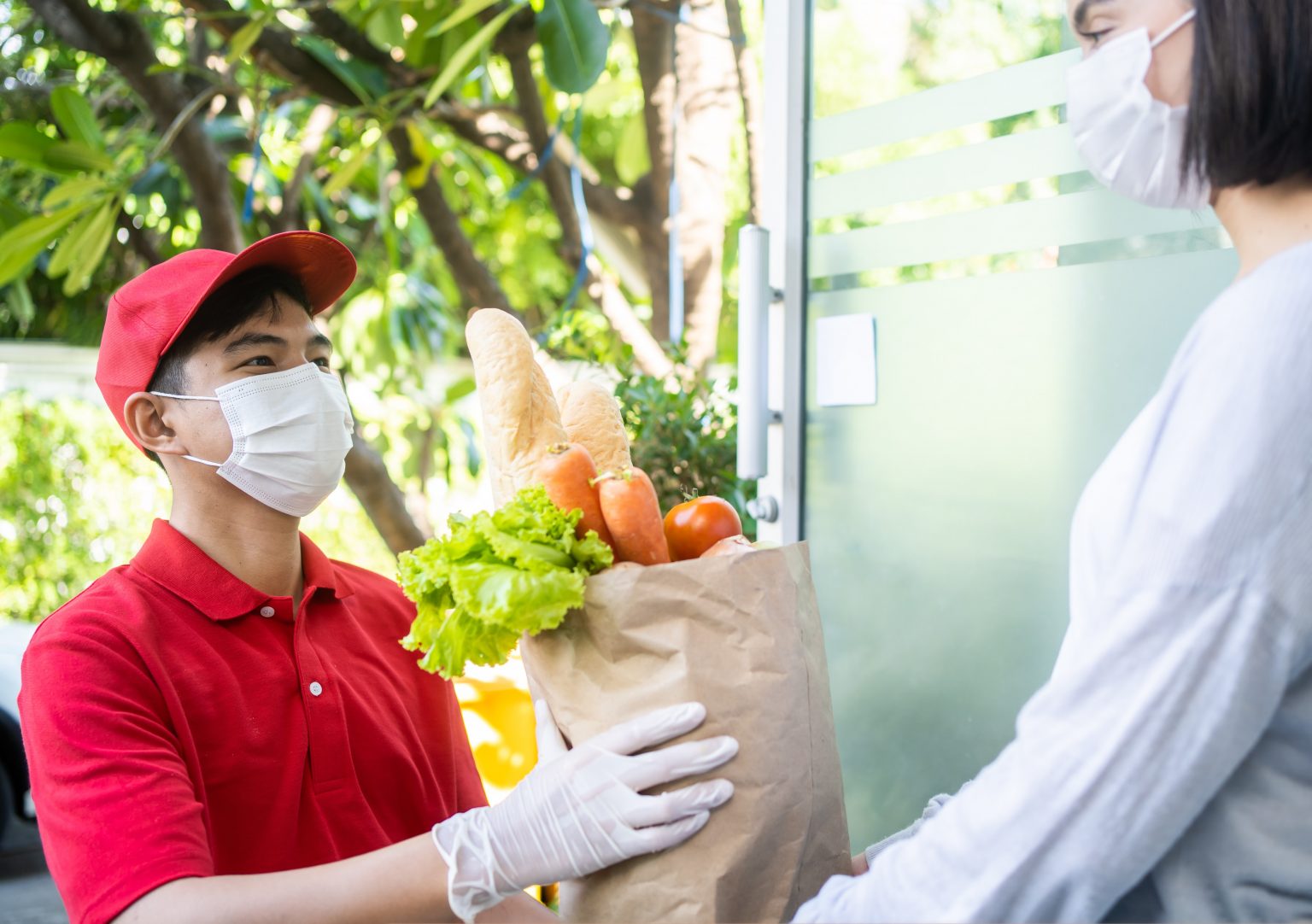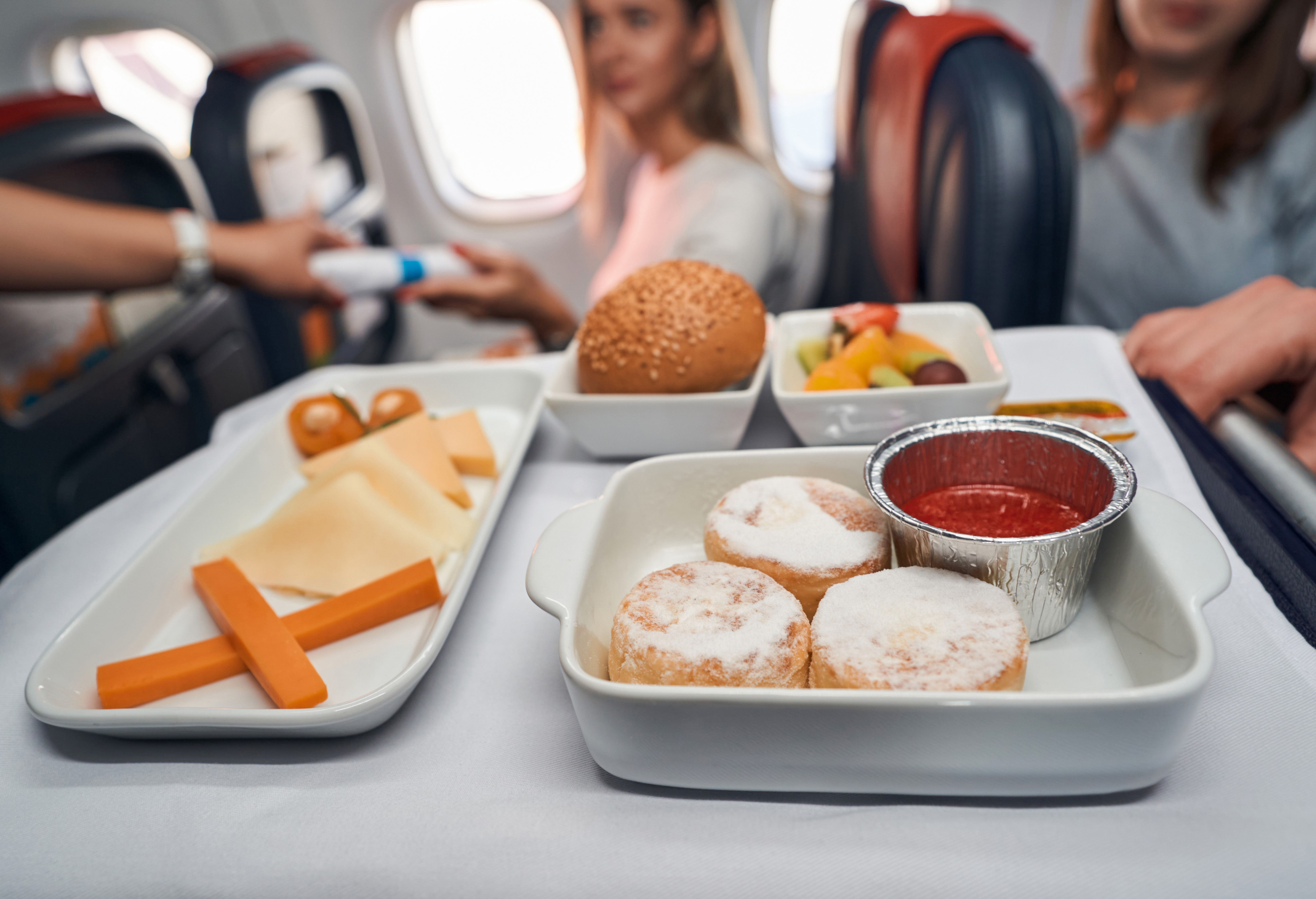Last Updated on May 2, 2024 by Admin
Personal hygiene is critical in maintaining safety standards and protecting consumers from potential foodborne illnesses. This guide is an indispensable resource for food handlers, detailing best practices in personal hygiene that contribute significantly to overall food safety.
Handwashing: The Foundation of Food Safety
Handwashing is a fundamental practice for maintaining food safety, necessitating strict adherence at various points during the workday. It is crucial to wash hands before beginning work, after any breaks, before and after handling different kinds of food, especially raw meats, and following restroom use. Additionally, hands should be washed after coughing, sneezing, or touching your face, as well as after dealing with trash or engaging in cleaning activities. These practices are essential to prevent contamination and ensure the safety of food products.
How to Wash Your Hands:
1. Firstly, use clean, running water to wet your hands.
2. Apply soap and lather well, covering all parts of your hands and wrists.
3. Scrub your hands thoroughly for at least twenty seconds.
4. Run water over your hands and wash them well.
5. Use a clean towel or an air dryer afterwards.
Handwashing is a vital practice that should always be timely, as it lays the foundation for impeccable food safety standards.
Personal Protective Clothing
Adorning the appropriate attire is another critical aspect of maintaining personal hygiene within the food industry. Food handlers should wear clean and proper uniforms, ensuring that their clothes are not a source of contamination.
Critical Components of Personal Protective Clothing:
- Hairnets or caps should be worn to prevent hair from falling into food.
- Aprons should be worn to protect both the food and the handler’s clothes from contamination.
- Closed-toe, slip-resistant shoes are essential to ensure safety and cleanliness.
- Jewellery should be removed or minimized as it can harbour bacteria and pose a contamination risk.
- Ensure your hands are thoroughly cleaned before donning a fresh pair of gloves.
- Change gloves regularly, particularly when switching between different types of food.
- Never wash or reuse disposable gloves.
- Ensure that the gloves are not torn or damaged.
- Understanding the proper use of food safety gloves is vital for food handlers, enhancing personal hygiene practices and food safety.
Adhering to proper protective clothing guidelines ensures that food handlers do their part to maintain a hygienic food preparation environment.
Avoid Coughing and Sneezing Near Food
Respiratory droplets can be a significant source of contamination, particularly in the food industry. Food handlers must be vigilant about preventing the spread of germs.
Best Practices:
- Always turn away from food when coughing or sneezing.
- Use a tissue while sneezing.
- After coughing, sneezing, or using a towel, wash your hands immediately.
By taking these easy steps, you can make a big difference in preventing contamination.
Safe Handling of Utensils
Utensils and food contact surfaces play a significant role in food safety, and proper handling is essential to prevent cross-contamination.
Tips for Safe Utensil Handling:
- Always use clean and sanitized utensils.
- Be cautious to keep your hands away from the areas of the utensils that make direct contact with food.
- Store utensils properly, ensuring they are not in contact with contaminated surfaces.
- Regularly inspect utensils for signs of wear and tear, replacing them as necessary.
Implementing these practices ensures that utensils do not become a source of contamination, upholding high food safety standards.
Training and Education
Investing in comprehensive training and education for food handlers ensures that personal hygiene practices are understood and adhered to consistently.
Benefits of Ongoing Training:
- Keeps food handlers up-to-date with the latest food safety guidelines and practices.
- Reinforces the importance of personal hygiene in maintaining food safety standards.
- Provides an opportunity for food handlers to ask questions and clarify any uncertainties.
- Encourages a culture of food safety within the workplace.
Regular training and education sessions are pivotal in maintaining a knowledgeable and competent workforce committed to upholding the highest food safety standards.
Read Also – An Introduction to Food Safety Guidelines
Maintaining a Clean Work Environment
Ensuring a clean and sanitary work environment is pivotal in maintaining high standards of personal hygiene and, by extension, food safety.
Strategies for a Clean Workplace:
- Regularly sanitize all work surfaces, especially before and after preparing food.
- Ensure that cleaning cloths are clean and disinfected before use.
- Dispose of waste promptly and adequately, using designated bins.
- Implement a regular cleaning schedule covering all areas of the workspace.
Maintaining cleanliness in the work environment prevents the spread of bacteria and contaminants, creating a safe space for food preparation.
Health and Wellness Policies
Personal health and wellness are integral to ensuring food safety. Food handlers who are unwell can inadvertently become sources of contamination.
Key Elements of Health and Wellness Policies:
- Encourage food handlers to stay home if they are feeling unwell, especially if they exhibit symptoms of contagious illnesses.
- Implement clear reporting procedures for sickness, ensuring that supervisors are promptly informed.
- Provide training on recognizing the symptoms of common foodborne illnesses.
- Regularly review and update health and wellness policies to reflect current best practices and regulations.
Personal Responsibility and Accountability
Personal responsibility and accountability are fundamental aspects of maintaining high standards of personal hygiene and ensuring food safety. Each food handler plays a crucial role in this process, and understanding their responsibility towards themselves, their colleagues, and the consumers is paramount.
Fostering a Sense of Responsibility:
- Encourage food handlers to take personal responsibility for their hygiene and actions in the workplace.
- Implement a system of accountability where food handlers know they are responsible for maintaining cleanliness and preventing contamination.
- Provide clear guidelines and expectations about personal hygiene and cleanliness in the workplace.
- Recognize and reward food handlers who consistently uphold high standards of personal hygiene, fostering a positive environment and encouraging others to follow suit.
Read Also – The Importance of Food Hygiene at Home and Outside
Conclusion
Personal hygiene is a cornerstone of food safety, and food handlers play a crucial role in maintaining these standards. From proper handwashing and attire to the safe handling of utensils and ongoing education, each aspect of personal hygiene contributes to the safety and integrity of food products. By following these best practices, food handlers can derive a sense of accomplishment from their work, guaranteeing that the food they craft and provide is secure and safe for consumption.
Ignoring personal hygiene can lead to widespread contamination, resulting in foodborne illnesses and outbreaks. This negligence can erode consumer trust, damage the reputation of food businesses, and lead to severe legal and financial consequences, undermining the industry’s efforts to ensure safety and trustworthiness. Together, we can create a food industry that is both safe and trustworthy, protecting consumers and efnhancing the reputation of food businesses across the globe.



